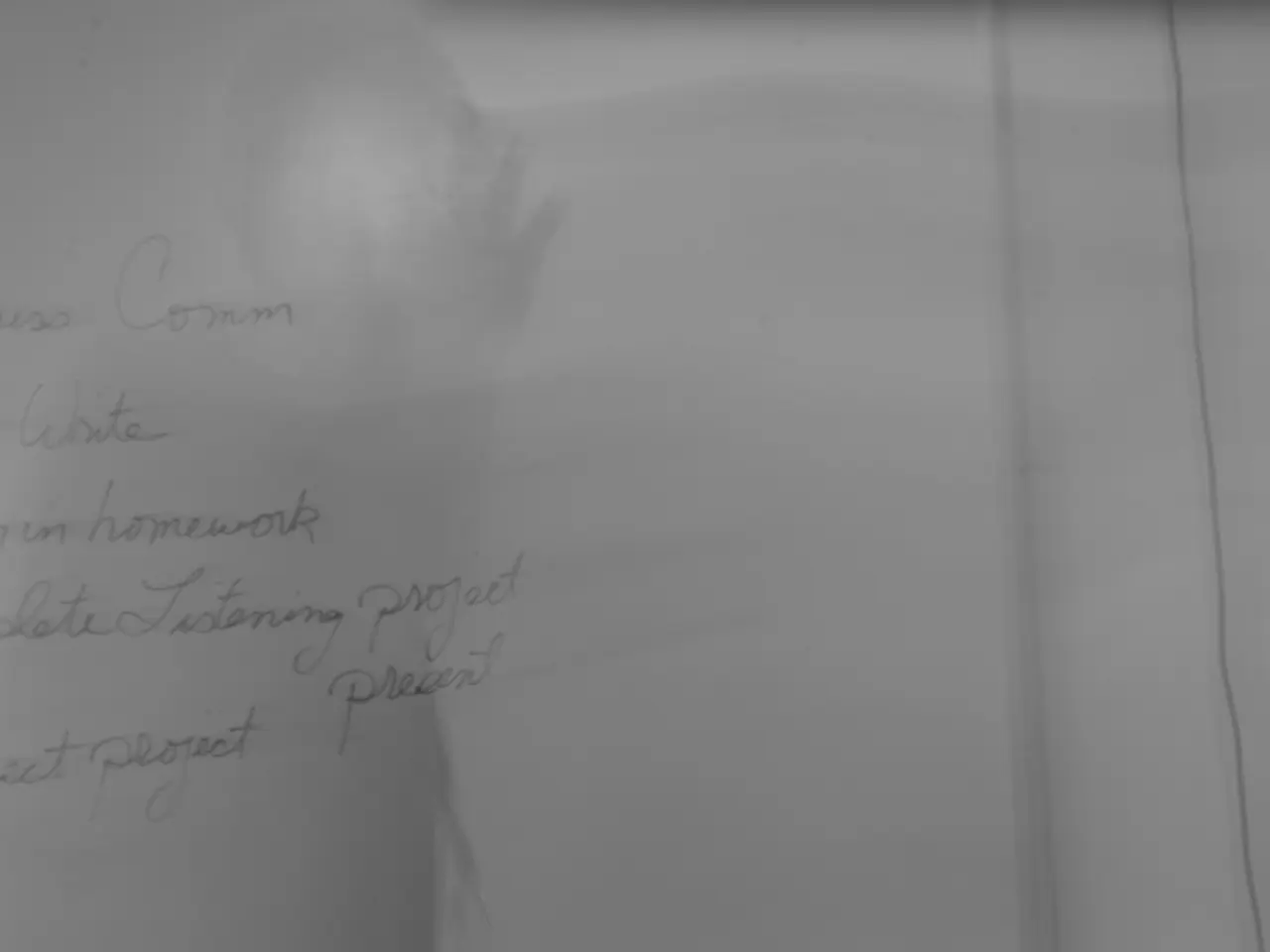Discussing with Lutz Goebel, the head of the alleged Standards Control Council
Chopping Away Red Tape: Driving Change in Germany
Germany's entrepreneurial landscape is getting a breath of fresh air, for three years running now, as Krefeld's Lutz Goebel chairs the committee determined to cut through the tangles of red tape and archaic laws. "The call to action couldn't be more urgent," Goebel declared at a Textile Academy NRW gathering of about sixty representatives from Mönchengladbach-based companies and organizations.
Goebel implored attendees to take part in this vital movement, stating, "It's time for business to set the pace – no one knows better where the hurt is most felt and what pressure points require immediate attention." Mönchengladbach's CDU chairman and state legislator, Jochen Klenner, seconded the call to action, stressing that empty promises of bureaucracy reduction just won't cut it anymore, especially when facing budget crises. "For the sake of time, money, and overall efficiency, we can no longer afford to hang on to unnecessary regulatory baggage," Klenner stated.
A change in politicians' and administrators' mindsets is essential, according to Klenner. "We're all too keen to secure every potential risk, micro-manage every individual case – and that's what breeds bureaucracy," he cautioned. Dr. Günter Krings and state legislator Vanessa Odermatt also weighed in, expressing a need for more trust, as opposed to suspicion, and suggesting that fewer reporting requirements would render many mandatory reports obsolete.
The emergence of Germany's newly-formed Ministry for Digital Affairs and State Modernization, however, offers a touchstone of hope. With the goal of reducing bureaucracy, the ministry plans to support the Normenkontrollrat, an independent council tasked with scrutinizing laws and advocating for simplification and cost reduction, by introducing concrete examples and innovative ideas from industry and society.
Besides constructive feedback, the gathering shared numerous complaints about bureaucracy, with Martin Dornieden, head of the state association of free real estate and housing companies, openly praising recent simplifications in building regulations in North Rhine-Westphalia by Minister Ina Scharrenbach. With high hopes for continued enhancements from the incoming federal government, Dornieden called for more progress in this area.
Dr. Christof Wellens, CDU mayoral candidate, also emphasized bureaucracy's role in city administration, stating, "Administration must function as an enabler, not an obstacle."
Insights
In Germany, concrete initiatives tailored towards the reduction of unnecessary regulations and bureaucracy have gained traction in recent years, with the Normenkontrollrat (NKR) and Germany's Ministry for Digital Affairs and State Modernization leading the charge. To address these issues, the NKR works to simplify and digitize informational and approval requirements affecting businesses and scrutinize laws for effectiveness, user-friendliness, and enforceability. Simultaneously, the Ministry for Digital Affairs and State Modernization pushes for digital transformation, streamlining administrative procedures, and integrating digital modernization at the core of governance. Additionally, targeted relief for specialized sectors, like the pension fund industry, offers flexibility to promote industry innovation. EU-wide regulatory simplification efforts also contribute to the broader push for more efficient, user-friendly governance aimed at promoting economic growth.
"The call to action for reducing bureaucracy and archaic laws in Germany extends beyond the Normenkontrollrat and the Ministry for Digital Affairs and State Modernization. It necessitates active involvement from business leaders, as Lutz Goebel and Jochen Klenner urge, to identify and address the pressure points that hinder economic growth"
"In the pursuit of more efficient and user-friendly governance, political leaders must adopt a more trust-based approach and consider digitizing information and approval requirements, as suggested by Dr. Günter Krings, Vanessa Odermatt, and the incoming federal government, to drive progress in economic and social policy"





